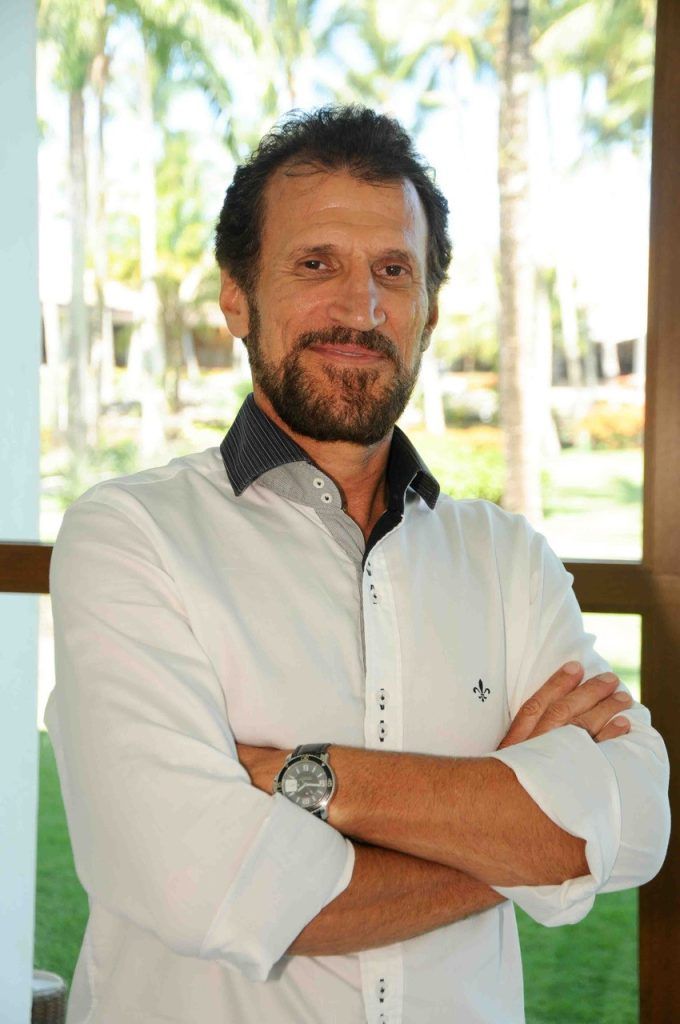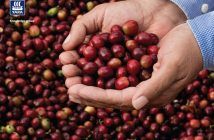To better understand the significance of this breakthrough, we did an exclusive interview with the director of institutional relations at ABICS, the Brazilian Association of the Soluble Coffee Industry, Aguinaldo José de Lima. Check it out below:
Grão Especial – Before you talk about the new methodology, I would like you to tell us a little about the history of ABICS (website).
Aguinaldo José de Lima – ABICS is a very old entity, dating back to the 60s, when soluble coffee was created. Brazil quickly became a world leader and, by the way, never lost that leadership again. ABICS currently has five member companies, with more than 50 years of experience in Brazil, namely: Nestlé, Cacique, Iguaçu, Real Café, Cocam, and we have a small one, Campinho, in Alfenas, Minas Gerais. Olam will enter next year, as it is starting its operations in February 2023, a production in Linhares, Espírito Santo, in an investment of more than R$ 800 million;
Grão Especial – How is Brazil’s participation in the soluble coffee market?
Aguinaldo José de Lima – Brazil is the world leader in the production of soluble coffee, our volume is 35% higher than that of the second producer market, which is Mexico.
We export to 100 to 120 countries per year, representing 16% of the international market, thus generating US$600 million in foreign exchange earnings. Soluble coffee is the 13th most exported agricultural product in Brazil.
Grão Especial – And how is the consumption of soluble coffees out there?
Aguinaldo José de Lima – The consumption of soluble coffee in the world accounts for 16 to 28% of the market. In the United Kingdom, to give you an idea, the consumption of soluble coffee is equivalent to 60%.
Grão Especial – What about the consumption in Brazil?
Aguinaldo José de Lima – As far as Brazil is concerned, it is only 5%, that is, we still have a lot to grow in the domestic market. But it is important to point out that consumption grows twice as compared to roasted coffee, and the product has been drawing a lot of attention worldwide. That is because soluble coffee companies started investing in quality about eight years ago, having invested in new packaging and in various uses of soluble coffee. Thereby, ABICS understood that it was necessary to standardize things so as not to lose these competitive advantages. L’Or, Nestlé, Melitta, 3Corações started to launch very different products. You no longer see just three brands on supermarket shelves as in the past. The soluble one was a coffee to be mixed with milk, and that was it! Very good soluble items began to emerge.

Grão Especial – But do consumers understand the difference?
Aguinaldo José de Lima – Our ultimate challenge as an association is to show consumers that soluble coffee is a good option, a good coffee and to break quality paradigms. Consumers need to taste, experiment, and I guarantee you that they will have pleasant surprises. Companies are investing in it. They have wonderful products! Nestlé has recently launched the special soluble product and many other innovations are on the way.
We don’t want to enter the market of fine, specialty coffees; each one has its market, its niche. Companies are making exceptional quality blends with robust coffees, canephora, finally treated with due respect by producers, in terms of quality. And the roasting industry is discovering that as well. If you go to Starbucks, for instance, many of their drinks, like fraputtinos, are made with instant coffee!
We are connected to the demands of consumers and with the advantage of being able to apply soluble coffee to anything, in gastronomy, in mixology, in drinks. Many cappuccinos are made with instant coffee. Many capsules that have something besides coffee are made with instant coffee too. And soluble coffees have their moment in the population’s diet. This is the message that the sector is taking.
Grão Especial – Please explain the new methodology for quality assessment.
Aguinaldo José de Lima – We are finalizing our methodology/protocol for sensory analysis of soluble coffee. Brazil, as the main protagonist, has the obligation to create a protocol, which does not exist anywhere in the world. Companies have their own, and now we’re creating one like the SCA (Specialty Coffee Association) and coffee score. In 2019, we created a working group coordinated by Eliana Relvas, a specialist in sensory assessment and consultant for ABICS, with the participation of Professor Aline Garcia, a scientific researcher at Ital, Campinas. We joined the seven industries, invited the great brands 3Corações, JDE, Melitta, Nestlé, a specialist from Native and, at the time, the chain of coffee shops named Suplicy.
In all, we gathered 15 professionals, over two years, who did a series of tests to build a methodology and validations. We applied an algorithm, created an application where coffee tasters launch an attribute on a scale from 0 to 5, and this algorithm says the coffee category, not the other way around. In other words, coffee is highlighted by attributes. We got rid of the issue of grades, as we found it very confusing for consumers. The analysis by grades got the tasters used to giving a grade and then fitting the attributes. We desire the opposite of that. We built the algorithm with three categories: conventional, excellence and complex. Each category has an applicability for the industry, each company uses the attribute it wishes, such as sweetness, woody and floral, and the most relevant one can be highlighted on the labels, which can also have the best application, whether in gastronomy, in the preparation of drinks etc.
Grão Especial – Is it an international protocol?
Aguinaldo José de Lima – Yes, it’s international. We’ll take this message to consumers; we are working on the creation of a seal for packages, which will define the coffee category and specify the main attributes. It will have a QRCode, with videos by Eliana Relvas and preparation instructions. It will be released by the end of the year at SIC, the International Coffee Week.
The protocol will be international and we will invite specialized journalists from all over the world to come to SIC. We want our international clients to use the protocol as it facilitates the conversation with our customers, thus making the language easier and facilitating our business. It will also make the understanding with consumers around the world easier too, of course. We will work with baristas, coffee shops, promoting events and championships thanks to the partnership signed with Apex. The idea is to invest a lot in education. We are going to train and certify QGraders and AGraders and create Instant Coffee Graders; we are going to offer courses for the internal audience. But the idea is that, over time, the methodology will be hosted in a large institution, such as Senai, for example, which from the onset has given us technical support. Eliana Relvas will coordinate the courses and then we will train other people in the market. But first, the associates and their employees!
Grão Especial – What does this partnership with Apex consist of?
Aguinaldo José de Lima – The first partnership with Apex was what we call a structuring project, where we did a branding work (national and international brand) for ABiCS. We created the AbICS Data platform, with statistical information; a robot agglutinates the data based on the figures from Brazil in a globally consolidated fashion, as well as the domestic market consumption statistics. Companies report month by month and the platform is consolidated, always demanding confidentiality. We also hired a permanent advisor to map possible relevant issues that we may have in the instant coffee market. In other words, the first partnership with Apex was aimed at structuring the tools. And the second one is precisely to communicate to the market, but we were harmed by the pandemic. Even so, the world will know what we are doing based on the SIC. We will invite 15 to 20 specialized international journalists, plus those from Brazil, to learn about the methodology and visit a soluble coffee factory in Minas during the event.
Grão Especial – How does the war between Russia and Ukraine affect the soluble coffee market?
Aguinaldo José de Lima – The war has greatly affected our market and we are very concerned. Russia is one of the greatest consumers of soluble coffee in the world and Ukraine is the seventh. Together, they represent 13.5% of Brazilian soluble coffee exports, which is equivalent to 500 thousand bags. We hope the conflict ends as soon as possible.



